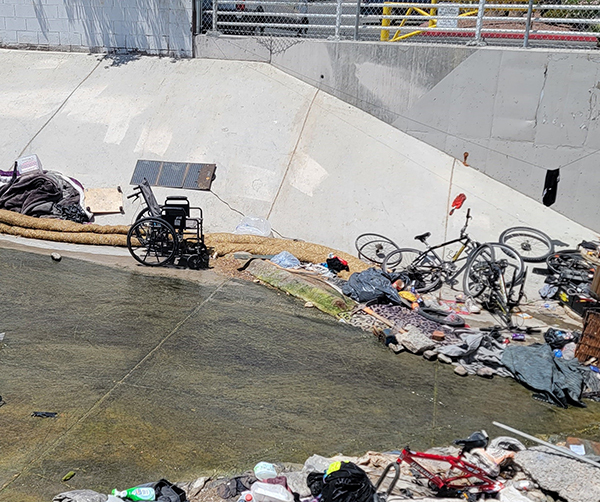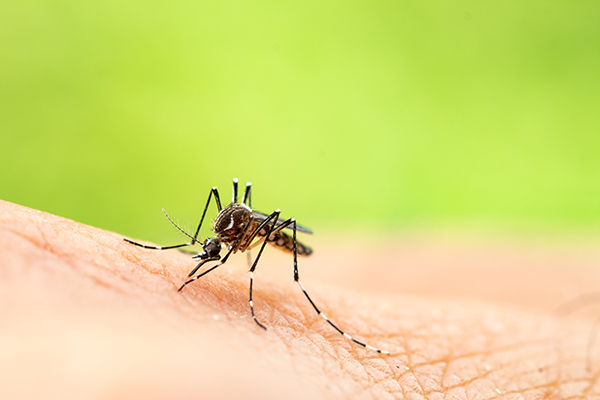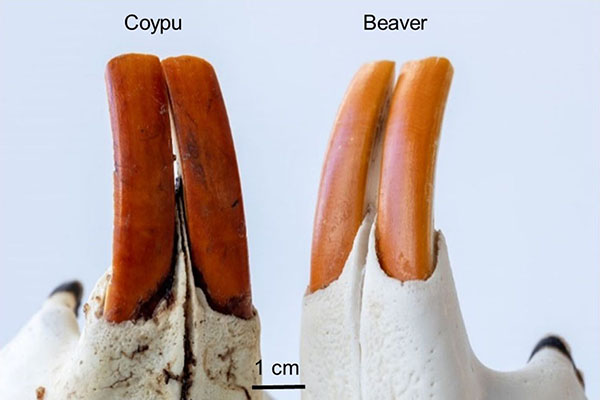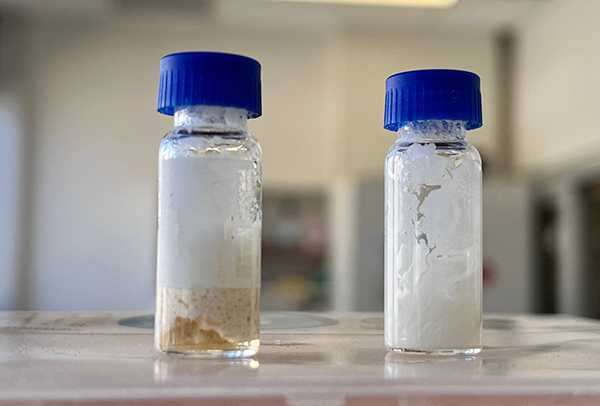FOR IMMEDIATE RELEASE
“Wheat-Based Glues in Conservation and Cultural Heritage: (Dis)solving the Proteome of Flour and Starch Pastes and Their Adhering Properties”
Journal of Proteome Research
“Bookworm” is a cute thing to call a voracious reader, but actual bookworms — as well as microorganisms and time — break down the flour pastes commonly used to keep old publications in one piece. Now, researchers in ACS’ Journal of Proteome Research have analyzed the proteins in wheat-based glues applied in historic bookbinding to provide insights on their adhesiveness and how they degrade. This information could help conservators restore and preserve treasured tomes for future generations.

Wheat-based glues have been used as far back as Ancient Egypt, but little is known about their protein makeup. Flour glues are made from the insides of wheat grains, which includes the gluten that’s so delicious to bookworms and microorganisms alike. Starch glue, on the other hand, is made from the proteins that remain after most of that gluten is removed, making it less attractive to pests. Understanding the nature of the proteins in these glues and how they affect the adhesives would help book conservators choose the best approaches and materials for their work. So, Rocio Prisby and colleagues created protein profiles for both flour and starch glues, identified differences between them, then used this information to analyze books from the National Library of Medicine (NLM) archives.
To create the protein profiles, called proteomes, the researchers first extracted proteins from lab-made versions of flour and starch glues. Then, they used mass spectrometry data and bioinformatics software to identify the types and relative abundance of proteins in the samples. The team discovered that flour glue has more proteins, and a wider variety of them, than starch glue. Additionally, the proteins in starch glue were particularly durable and flexible, making it a potentially better choice than flour glue for book repairs.
The researchers next used their protein profiles to analyze historic book binding samples from the NLM archives. They confirmed that the adhesives were flour-based because of their gluten content and identified degraded gluten in the samples, which could indicate damage and a loss of stickiness. They also identified that the chemical breakdown of leather and glue in a book’s cover impact each other, possibly leading to faster overall deterioration. This work provides information that could signal to a conservator the need for repair, potentially preventing a book from being damaged or destroyed. More broadly, the researchers state that the results demonstrate the potential of protein analysis in guiding conservation efforts.
The authors acknowledge support from the National Library of Medicine.
###
The American Chemical Society (ACS) is a nonprofit organization chartered by the U.S. Congress. ACS’ mission is to advance the broader chemistry enterprise and its practitioners for the benefit of Earth and all its people. The Society is a global leader in promoting excellence in science education and providing access to chemistry-related information and research through its multiple research solutions, peer-reviewed journals, scientific conferences, eBooks and weekly news periodical Chemical & Engineering News. ACS journals are among the most cited, most trusted and most read within the scientific literature; however, ACS itself does not conduct chemical research. As a leader in scientific information solutions, its CAS division partners with global innovators to accelerate breakthroughs by curating, connecting and analyzing the world’s scientific knowledge. ACS’ main offices are in Washington, D.C., and Columbus, Ohio.
To automatically receive press releases from the American Chemical Society, contact newsroom@acs.org.
Note: ACS does not conduct research, but publishes and publicizes peer-reviewed scientific studies.









